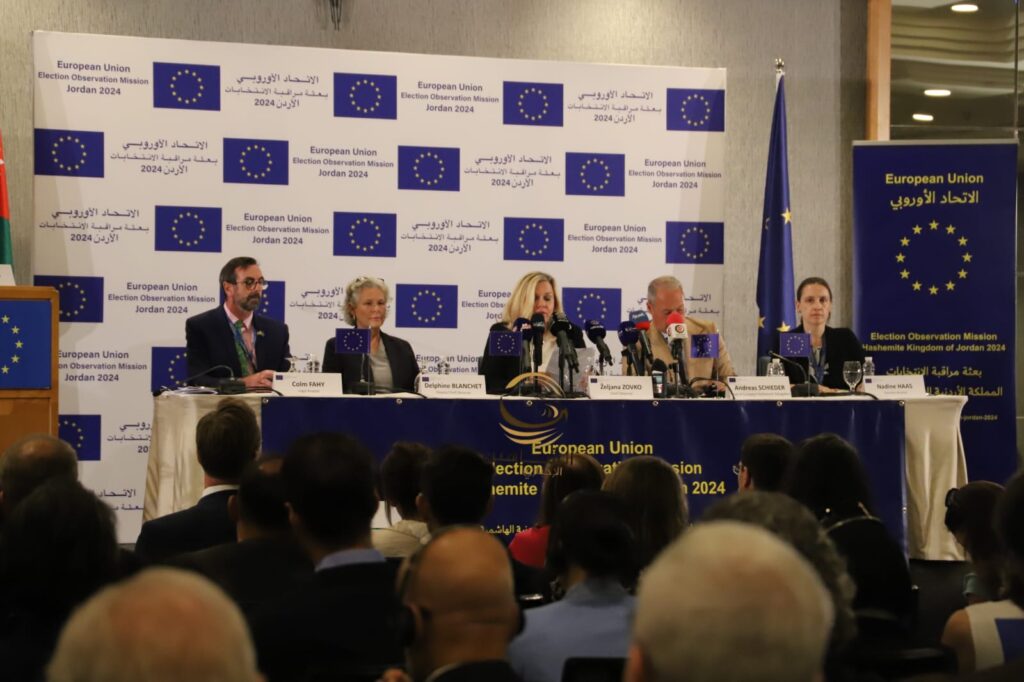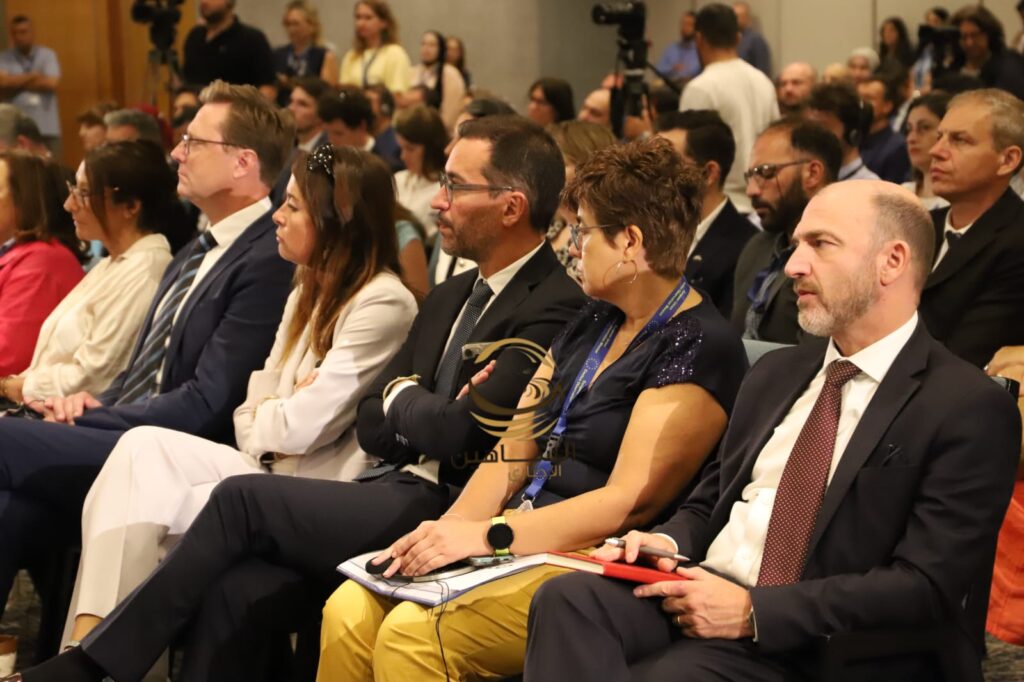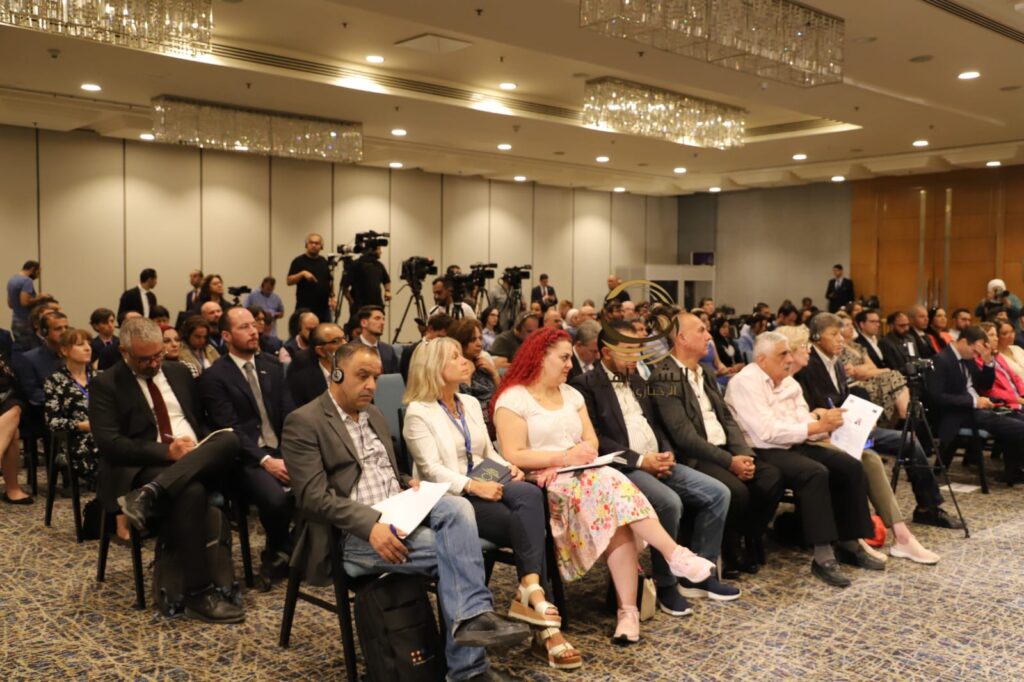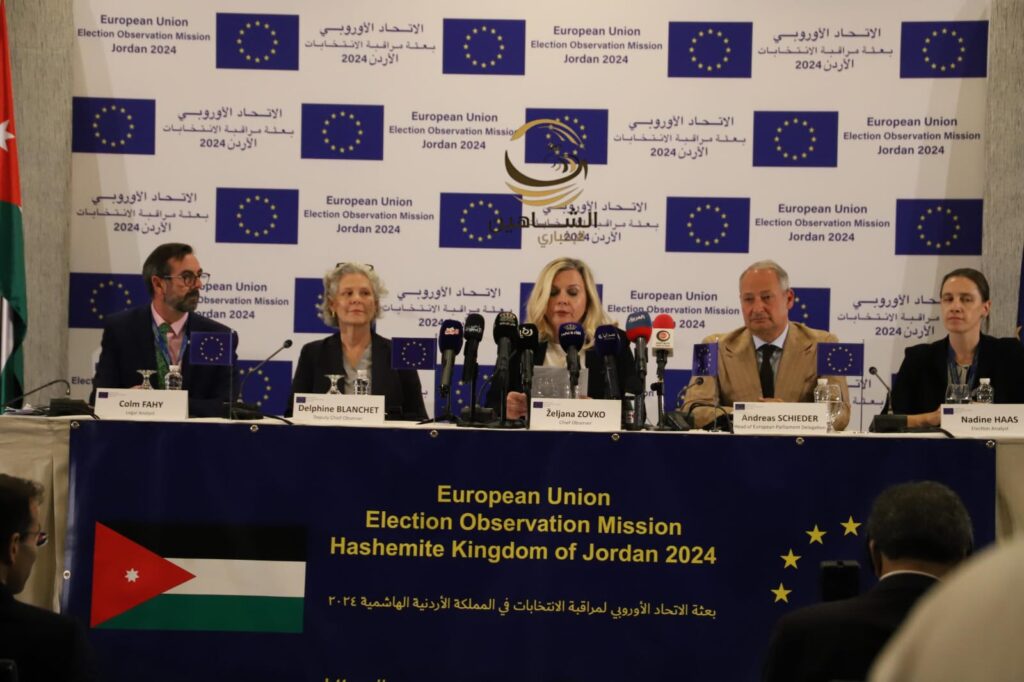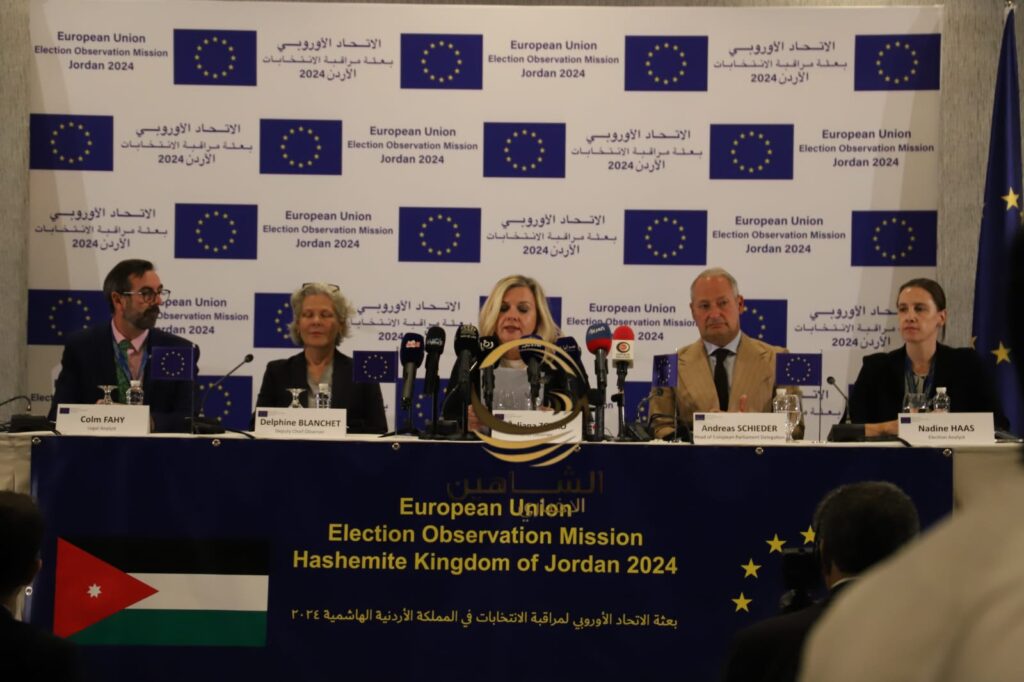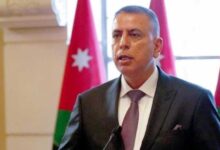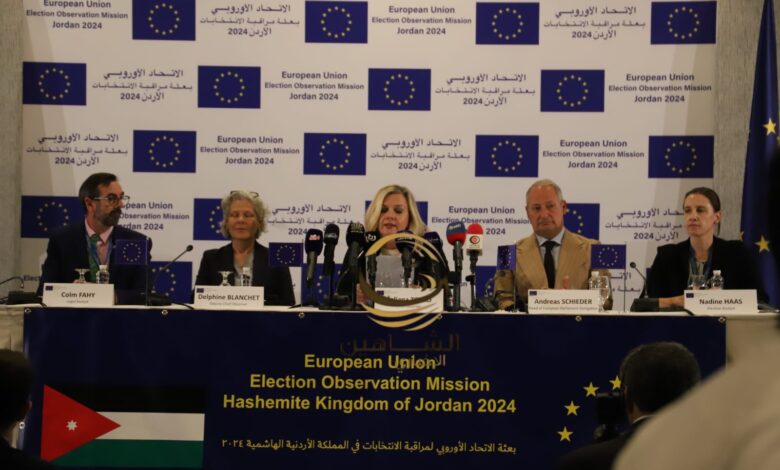
European Union / Well-run, inclusive elections in the context of ambitious reforms process
shahennews
On 10 September 2024, more than 1,6 million Jordanian voters headed to the polls in a well-run, inchesive election. The Independent Election Commission (IEC) implemented the process on time and efficiently. Despite the uncertainty generated by the conflict in Gaza and its wider regional repercussions, Jordan showed commitment to holding elections on schedule” said EU Election Mission Chief Observer Željana Zovko during a press conference in Amman, where she presented the mission’s Preliminary Statement.
On election day, EU observers visited 622 polling stations across all electoral districts of Jordan to observe voting and counting. During the night, they were observing the aggregation process in District Election Committees. Their work is not over yet and will continue until the announcement of results “Election day was assessed as calm, professional and orderly by EU observers, with a high level of presence of lists’ representatives. Campaign activities were widespread outside polling stations, despite the legal prohibition on campaigning on election day.” Mrs. Zovko stressed.
Jordan’s electoral legal framework is largely consistent with the state’s commitments under key regional and international treaties related to the conduct of democratic elections. “The 2022 Election Law to the House of Representatives and the Political Parties Law are important milestones, aiming to increase the role of political parties in the House of Representatives over three consecutive elections; a key element of the political modernisation process” said Mrs Zovko. These new legislation and parallel constitutional amendments enhance, in particular, inclusion of women, youth, persons with disabilities and ethnic and religious communities. They also entail some new transparency measures such as the publishing of results at polling station level, a previous EU EOM recommendation. At the same time gaps remain, notably in relation to campaign finance and media environment. As a positive development, there is for the first time a reserved woman’s seat in each Local Electoral District.
“These well-organised elections took place in the context of the modernisation process initiated in Jordan to promote an inclusive multi-party system. We fully support this long-term objective of which these elections were an important step. A well-functioning democracy where tolerance, equality, inclusiveness, mutual cooperation and openness thrive is essential for the stability and prosperity of any society,” said Andreas Schieder, Head of the Delegation of the European Parliament that joined the EU EOM and fully endorsed its statement.
The Chief Observer emphasised the overall confidence in the accuracy and inclusiveness of voter lists. The candidate registration process was also assessed as inclusive and smooth. However, the transparency of tabulation procedures was diminished by the exclusion of candidates and list representatives from observing the tabulation
Nonetheless, lack of interest was reported by EU observers and political parties throughout the five-week campaign, which remained relatively low-key until its last two weeks. Moreover, despite a comprehensive voter education programme conducted by the IEC, EU observers noted some concern about the low level of knowledge on how to vote for the new General Electoral District as opposed to the Local Electoral Districts. Media and news websites failed to provide voters with sufficient information about electoral contestants. The online environment remained mostly respectful, focusing primarily on candidates’ self-promotion. Additionally, the EU EOM observed that during the campaign, journalists operated under multiple legal restrictions to freedom of expression included in the Cybercrime Law and the Penal Code
The European Union Election Observation Mission (ELU EOM) has been present in Jordan since 29 July 2024 following an invitation from the Independent Election Commission. Its mandate was to assess the entire electoral process against Jordan’s
constitution, laves and its international commitments for democratic ele elections. The EU EOM deployed 120 observers from. om EU member states, Canada, Norway and Switzerland. This preliminary statement is delivered prior to the completion of the election process. The EU EOM remains in country to observe post-election developmentt and will publich a final report containing detailed recommendations, within two months of the conclusion of the electoral proces
